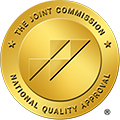At Georgia Sky Outpatient Detox, our ecstasy addiction treatment includes medical care, counseling, and relapse prevention support. We offer a caring environment where you can begin to heal and start feeling in charge of your life again.
While it may seem harmless at first, ecstasy can lead to physical and emotional problems, especially with frequent use or high doses. Many pills sold as ecstasy are also mixed with other drugs like meth, cocaine, or synthetic substances, which increases the risk of overdose or unpredictable effects.
How Ecstasy Affects the Brain and Body
Using ecstasy often can damage the brain’s ability to manage mood, memory, and sleep. It can also raise your heart rate and blood pressure, which may put strain on your heart. In some cases, ecstasy causes overheating and dehydration, which can become life-threatening in hot or crowded places. Long-term use may lead to addiction, anxiety, and problems with focus or decision-making.
Is Ecstasy Addictive? Understanding the Risk
Repeated use of ecstasy can lead to emotional withdrawal, sleep problems, memory issues, and anxiety when not using the drug. While not everyone becomes addicted, the risk increases with frequent use, especially in unsafe environments or when ecstasy is mixed with other substances.
Signs and Symptoms of Ecstasy Abuse
Ecstasy increases serotonin, a brain chemical that affects mood, sleep, and memory. When the drug wears off, serotonin levels drop sharply. This sudden change can leave people feeling sad, tired, or emotionally flat for days. These emotional crashes are one of the earliest signs of abuse.
Some common signs of ecstasy abuse include:
- Needing larger doses to get the same high as before
- Feeling anxious, moody, or low after the drug wears off
- Losing interest in work, school, or relationships
- Difficulty sleeping or staying focused
- Memory lapses or confusion
- Teeth grinding, muscle tension, or overheating
- Risky behaviors or poor decision-making
These signs often appear gradually and may be mistaken for stress or fatigue. But when ecstasy use becomes regular, these symptoms tend to grow worse.
The Short-Term and Long-Term Effects of Ecstasy Use
Short-term effects of ecstasy may include:
- A boost in energy, confidence, or emotional closeness
- Heightened senses, especially to light and sound
- Rapid heartbeat, high blood pressure, or dry mouth
- Muscle cramps, teeth grinding, or blurred vision
- Overheating and dehydration, especially in crowded spaces
- Trouble regulating emotions or body temperature
- Anxiety, restlessness, or paranoia
High doses or contaminated pills can lead to seizures, panic attacks, or dangerous changes in heart rhythm. Most ecstasy sold on the street is not pure MDMA. It’s often mixed with stimulants, hallucinogens, or synthetic drugs that increase health risks.
Long-term use can lead to:
- Lasting changes in mood, including depression or anxiety
- Sleep problems and reduced appetite
- Memory loss and difficulty focusing
- Brain changes that affect decision-making and impulse control
- Emotional numbness or trouble feeling joy without the drug
- Possible liver, kidney, or heart damage with heavy use
Ongoing ecstasy use can disrupt brain chemistry, making it harder to enjoy life or feel emotionally balanced when not using. People who use ecstasy regularly often describe feeling “drained” or disconnected in their daily lives.
Getting support early can reduce these risks and help rebuild emotional balance. Recovery is possible, especially with professional care and support from others.
Risks of Mixing Ecstasy with Other Substances
Ecstasy changes how the brain uses mood-related chemicals like dopamine and serotonin. When combined with alcohol, cocaine, or prescription drugs, it can overstimulate the brain and body. This can lead to panic, seizures, dehydration, or unconsciousness.
While fatal ecstasy overdoses are rare, it’s uncommon for death to occur from ecstasy alone. In most reported cases, other substances were also involved. Mixing drugs increases the chances of long-term damage or emergency medical issues, even for first-time users.
Recognizing When Ecstasy Use Becomes a Problem
When ecstasy use starts causing emotional crashes, sleep issues, or mood swings, it may be a warning sign. If someone begins to crave the drug or relies on it to socialize, that’s another red flag. Ignoring these signs can lead to deeper struggles with mental health, memory, and decision-making.
It’s also important to watch for changes in behavior—like skipping responsibilities, pulling away from loved ones, or needing more of the drug to feel the same high. These are signs that the brain is starting to depend on ecstasy. Recognizing the problem early can make a big difference in getting help and avoiding long-term damage.
Withdrawal Symptoms and Challenges in Ecstasy Detox
When someone stops using ecstasy after regular use, their brain struggles to adjust. It interacts with brain chemicals that regulate your emotions and energy levels. When it wears off, people may feel drained, sad, or emotionally flat.
- Common ecstasy withdrawal symptoms include:
- Fatigue and lack of energy
- Trouble sleeping or vivid, unpleasant dreams
- Feeling anxious, depressed, or emotionally flat
- Irritability or mood swings
- Difficulty concentrating
- Cravings to use ecstasy again
These symptoms may last several days to a week, depending on how often and how much the person was using. The emotional discomfort during this time can lead to relapse if proper care and support aren’t in place. That’s why it’s important to detox under the guidance of professionals who understand ecstasy withdrawal.
Ecstasy Addiction Treatment Options in Atlanta, GA
- Outpatient Treatment: Outpatient care lets people attend therapy and support sessions while continuing to live at home.
- Medical Detox Support: Medical detox helps manage emotional withdrawal symptoms like anxiety, depression, and insomnia during the early days of recovery.
- Individual and Group Therapy: Therapy helps people explore the reasons behind drug use and learn healthy coping skills for everyday life.
- Aftercare and Relapse Prevention: Aftercare keeps people connected to support through counseling, sober living, and peer recovery groups after formal treatment ends.
At Georgia Sky Outpatient Detox, we work closely with each person to find the right path forward. We aim to help you build lasting strength, not just get through the early stages of recovery.
What to Expect from Outpatient Rehab at Georgia Sky
Our program gives you structure and support without needing a hospital stay. We treat ecstasy addiction with personalized care and practical tools. All the way through treatment, our team stays by your side.
Here’s what you can expect during ecstasy addiction treatment at Georgia Sky:
- Initial Assessment: We begin by learning about your health, history, and goals. This helps us build a care plan that fits your needs.
- Medical Support: If needed, we provide help with withdrawal symptoms like anxiety, mood swings, and trouble sleeping.
- One-on-One Therapy: You’ll meet with a licensed counselor to explore what led to your drug use and how to build healthy coping skills.
- Group Sessions: You’ll connect with others facing similar struggles, offering and receiving support in a safe space.
- Flexible Scheduling: We offer morning, evening, or weekend options to fit your job, family, or school responsibilities.
- Relapse Prevention: You’ll learn how to handle cravings, avoid triggers, and stay focused on long-term recovery.
Our goal is to help you recover without shame, fear, or pressure. At Georgia Sky, we approach every part of your recovery with kindness, respect, and a genuine commitment to your healing.
Therapeutic Approaches Used in Ecstasy Addiction Recovery
Here are some of the key therapeutic approaches used in ecstasy addiction recovery:
- Cognitive Behavioral Therapy (CBT): CBT helps you understand how your thoughts affect your behavior. It teaches you how to shift negative thinking and make healthier choices.
- Motivational Interviewing (MI): MI helps you strengthen your desire to change. It uses gentle conversation to uncover your personal reasons for quitting ecstasy.
- Dialectical Behavior Therapy (DBT): DBT teaches emotional regulation, mindfulness, and coping skills. It’s especially helpful for people dealing with intense emotions or trauma.
- Contingency Management: This approach uses positive rewards to reinforce healthy actions like staying sober, attending sessions, or passing drug tests.
- Trauma-Informed Therapy: Many people who use ecstasy have experienced trauma. This therapy focuses on healing emotional wounds with care and sensitivity.
- Group Therapy: Group sessions offer connection, shared stories, and accountability. They remind you that you’re not facing recovery alone.
We tailor these approaches based on your unique needs. At Georgia Sky, recovery is about healing the whole person—not just stopping the drug.
Aftercare and Long-Term Support for Lasting Sobriety
Aftercare helps you stay focused and confident as you return to daily life. It’s common to face challenges after treatment—like stress, triggers, or social pressure. With the right tools and support, you can face those moments without turning back to ecstasy.
Ongoing therapy, peer support groups, and check-ins with your care team can help you stay grounded. Some people also choose sober living homes or online support groups. No matter the path, aftercare gives you the strength and structure to protect your progress.
Why Choose Georgia Sky Outpatient Detox for Ecstasy Addiction
We offer flexible outpatient care that works with your schedule—not against it. Whether you’re balancing work, school, or family, we help you build recovery into real life. Our licensed therapists, medical team, and support staff work closely with you at every stage.
Our approach is always personal. We don’t use one-size-fits-all treatment plans. We listen, adapt, and grow with you. To learn more about our services, visit our website and explore how Georgia Sky Outpatient Detox can support your journey.
Contact Georgia Sky Outpatient Detox to Start Your Recovery
Getting started is simple. Call us, send a message through our website, or visit us in person. Our team is ready to answer your questions, explain your options, and help you feel at ease.
We know that reaching out takes courage. That’s why we respond with understanding, not criticism. Your recovery is important, and we’re here to support you every step of the way. Reach out today to start ecstasy addiction treatment and take your first step toward peace, health, and freedom.




